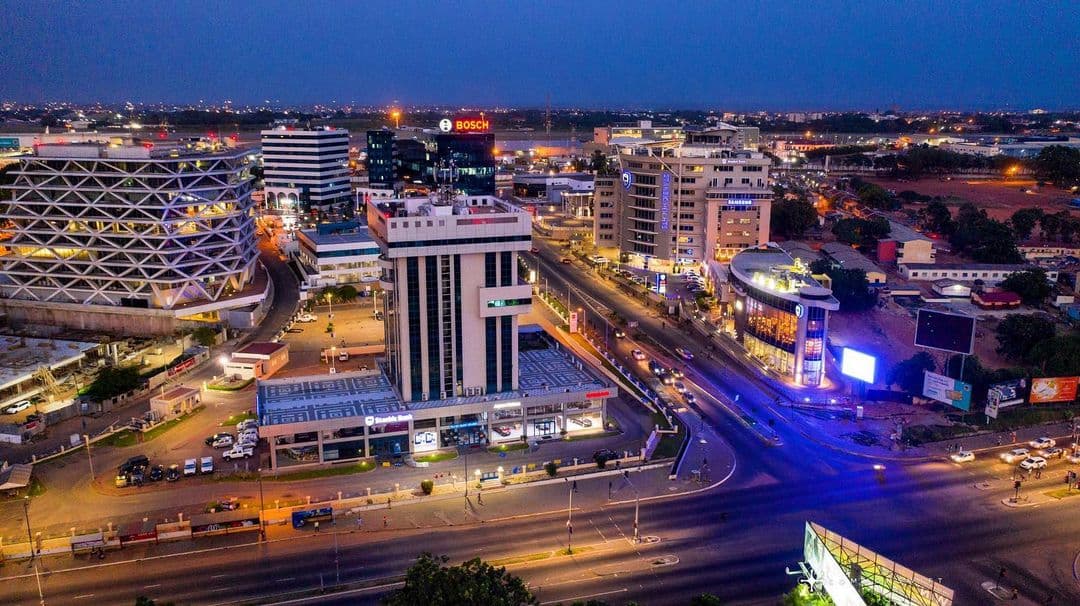Investment Opportunities Unveiled: Ghana's Inflation Transformation Beckons Investors
Go to all updates
Emerging markets have always been a focus for astute investors looking for growth prospects in the world of international investment. While the economy of the continent of Africa has seen its share of difficulties, recent data have highlighted a startling turnaround, with Ghana taking center stage. The analysis by Business Insider Africa on the 10 African nations where inflation has decreased the most since the year's beginning indicates not only a statistical change but also a positive investment narrative.
According to data sourced from Trading Economics, Ghana has made significant strides in curbing inflation over the course of the year. Starting with a relatively high inflation rate of 53.6% in January, the country has managed to bring it down to 43.1% by July, marking a notable 10.5% improvement. This positive change not only underscores Ghana's commitment to economic stability but also sends a strong signal to investors that the country is actively addressing key challenges.
Inflation is often regarded as an economic red flag, capable of eroding purchasing power and destabilizing markets. Thus, when a country like Ghana undertakes measures to bring down its inflation rate, it demonstrates a dedication to creating a conducive environment for both local and foreign investors. This newfound stability can translate into enhanced investor confidence and a willingness to explore opportunities within the country.
The remarkable decrease in inflation could have cascading effects on various sectors of Ghana's economy. As the cost of borrowing potentially becomes more affordable due to reduced inflationary pressures, businesses could find it easier to access capital for expansion and innovation. Moreover, the reduction in inflation can lead to stabilized commodity prices, reducing operational uncertainties for companies that rely on raw materials.
Real estate, manufacturing, and technology sectors are likely to be among the top beneficiaries of this improved economic outlook. As inflation recedes, consumer spending power is bolstered, potentially driving demand for goods and services. This can create a ripple effect, boosting industrial production and prompting businesses to explore new avenues for growth.
For foreign investors eyeing opportunities in Ghana, this shift is particularly noteworthy. The decrease in inflation reflects prudent fiscal and monetary policies, signaling that the government is actively working to create an investor-friendly climate. The relatively rapid pace at which Ghana has managed to improve its inflation rates, especially in comparison to some of its regional peers, speaks volumes about its resilience and commitment to progress.
Factors to Consider Beyond Inflation
Investment decisions should be rooted in a comprehensive understanding of the investment climate. While reduced inflation can signal a positive shift, investors should view this in conjunction with other pivotal aspects. Beyond inflation, investors need to assess political stability, infrastructure development, regulatory frameworks, and the overall ease of doing business. Simply put, to make informed decisions, investors must delve into a broader set of factors:
- Political Stability: Ghana has maintained a relatively stable political environment, which is crucial for sustained economic growth. Investors often seek predictability and minimal political disruptions.
- Infrastructure: The country's ongoing efforts to improve infrastructure, coupled with its strategic location, offer enticing prospects for businesses looking to establish a presence in a burgeoning market.
- Regulatory Environment: While the commitment to stabilizing inflation is commendable, investors should also assess the ease of doing business, regulatory transparency, and legal protections.
- Investor-Friendly Policies: Ghana's dedication to fostering an investor-friendly climate is evident in its proactive policies. However, considering the broader economic challenges, investors must evaluate the government's ability to maintain these policies consistently.
- Market Potential: Despite the inflation concern, Ghana's large population and growing middle class present significant market potential across various sectors.
Ghana's remarkable progress in taming inflation and its astute focus on creating an investor-friendly environment converge seamlessly at the Dawa Industrial Zone. Investors are now presented with a golden opportunity to participate in the country's unfolding success story. By establishing their presence within this zone, they can leverage Ghana's strategic location, burgeoning infrastructure, and proactive policies prioritizing economic stability and investor facilitation.
Again, the Dawa Industrial Zone epitomizes the country's dedication to sustainable economic growth. This ambitious undertaking holds the promise of becoming a transformative hub for industrialization and economic diversification. Its strategic location, adjacent to the country's bustling port, underscores its potential as a logistical and manufacturing powerhouse. With a comprehensive array of incentives for investors, ranging from tax benefits to streamlined regulatory procedures, the Dawa Industrial Zone beckons as a haven for those looking to participate in Ghana's economic resurgence.
To wrap up, Ghana's transformation is taking place at a pace not usually seen in emerging markets. However, the country's firm commitment to strengthening its macroeconomic stance and attaining macroeconomic stability is likely to embolden the local investor community and entice strategic investors from around the globe. And with that, the Dawa Industrial Zone promises to become a future powerhouse for growth and development within Ghana.
Featured image: Ghana News Agency
More
updates

How Industrial Parks Are Powering Economic Growth in Africa
Blog∙30th April, 2025

Addressing The Infrastructure Gaps in Sub-Saharan Africa
Blog∙11th March, 2025

Regional vs. National Approaches to Trade Facilitation: Which is More Effective for Africa?
Blog∙11th December, 2024

Earn Big with Dawa Refer & Earn: Unlock Lucrative Rewards for Every Business You Refer!
Blog∙13th November, 2024

Leapfrogging the Growth Trap: Policy Initiatives for Developing Economies in a Globalized World
Blog∙4th October, 2024
